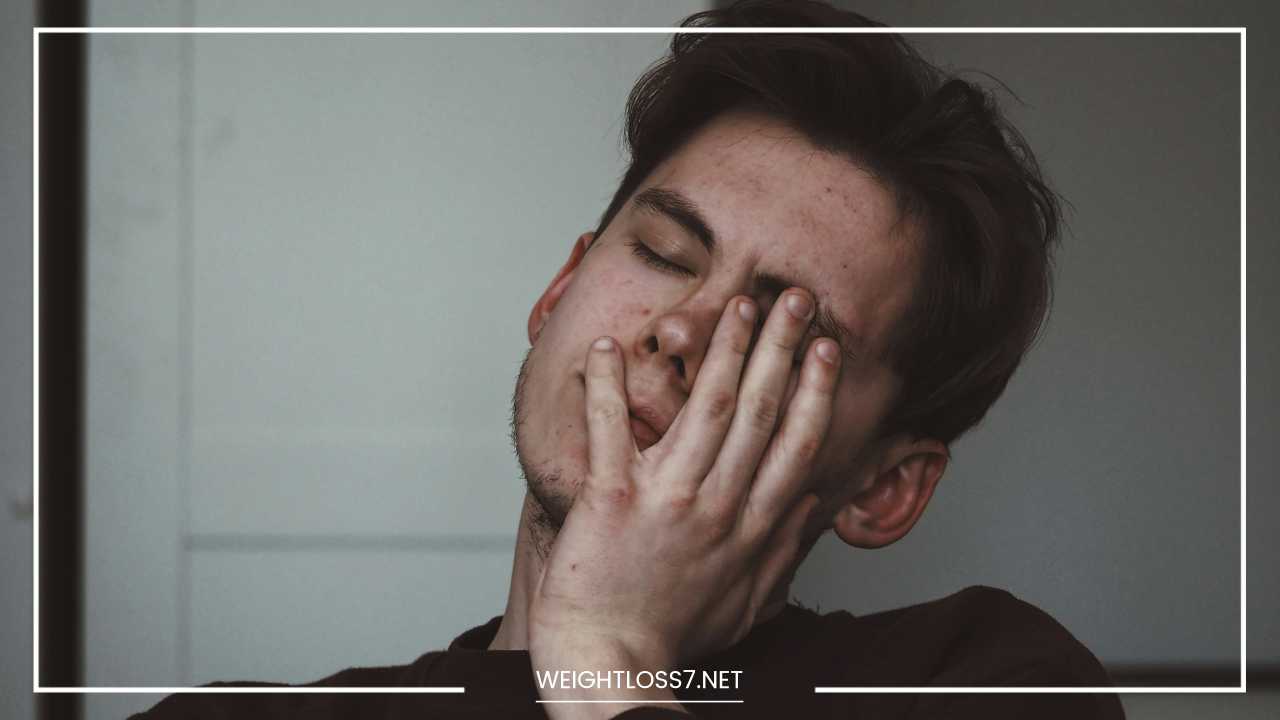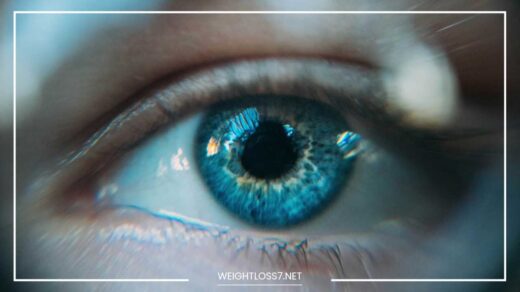The Silent Thief: How Lack of Sleep is Hurting You

Lack of Sleep
The Silent Thief: How Lack of Sleep is Stealing Our Health and Happiness
In the relentless pursuit of productivity, sleep often gets sacrificed. We wear our fatigue as a badge of honor, a testament to our busy lives.
But what if I told you this badge comes with a hefty, hidden cost? Sleep deprivation, the chronic state of not getting enough sleep, is a silent thief, robbing us of our health, happiness, and even our safety.
This isn’t just about feeling tired. The consequences of sleep deprivation are far-reaching and impact every aspect of our well-being.
The Symphony of Sleep: Understanding Its Importance
Before we delve into the consequences, let’s explore the science behind sleep. Contrary to popular belief, sleep isn’t simply a state of unconsciousness.
It’s a complex biological process, a symphony of brain activity where our bodies and minds actively restore and rejuvenate.
During sleep, our brains cycle through various stages, each playing a crucial role:
- Non-REM (Rapid Eye Movement) Sleep: This stage comprises four progressively deeper phases. In the deepest stages, our bodies prioritize physical restoration, releasing growth hormones, repairing tissues, and strengthening the immune system.
- REM Sleep: Characterized by rapid eye movement and increased brain activity, REM sleep is essential for cognitive function, memory consolidation, emotional processing, and creativity. It’s during REM sleep that we dream, which is thought to play a role in emotional regulation and learning.
Most adults require around seven to nine hours of sleep per night, with the ideal amount varying slightly between individuals.
However, the quality of sleep is just as important as the quantity. Disruptions during the night, even if brief, can significantly impact the restorative benefits of sleep.
The High Cost of Low Sleep: Unveiling the Consequences
Chronic sleep deprivation, defined as consistently getting less than the recommended amount of sleep, disrupts this delicate sleep symphony, leading to a cascade of negative consequences:
- Physical Health: Sleep deprivation weakens our immune system, making us more susceptible to infections and chronic illnesses like heart disease, diabetes, and even certain cancers. Studies suggest that sleep deprivation disrupts the production of hormones that regulate metabolism, potentially leading to weight gain and difficulty managing blood sugar levels.
- Mental Health: Our brains rely heavily on sleep for optimal function. When sleep-deprived, we experience a decline in cognitive function, including difficulty focusing, impaired memory, and decreased creativity. Chronic sleep loss has been linked to anxiety, depression, and even an increased risk of suicide.
- Safety: Drowsy driving is a major public health concern. Sleep deprivation decreases reaction time, impairs judgment, and affects coordination, significantly increasing the risk of accidents behind the wheel. Even seemingly minor tasks like operating machinery or walking home at night become more dangerous when sleep-deprived.
- Productivity and Performance: Contrary to the belief that pulling an all-nighter makes us more productive, sleep deprivation actually hinders our ability to perform at our best. We might experience a temporary surge of energy, but our focus, critical thinking, and decision-making skills are significantly compromised. Sleep deprivation can also lead to increased workplace accidents and absenteeism.
Beyond the Obvious: The Hidden Impacts of Sleep Deprivation
The negative effects of sleep deprivation go beyond the readily apparent. Here are some lesser-known ways lack of sleep can affect our lives:
- Decreased Emotional Intelligence: Sleep deprivation can make it difficult to regulate emotions and recognize them in others. This can lead to strained relationships, misunderstandings, and difficulty managing stress.
- Impaired Skin Health: Ever noticed those puffy eyes and dull complexion after a sleepless night? Sleep deprivation disrupts the production of collagen, a protein essential for maintaining youthful, radiant skin. It can also worsen skin conditions like eczema and psoriasis.
- Gut Health Issues: Our gut microbiome thrives on a regular sleep schedule. Sleep deprivation disrupts the delicate balance of gut bacteria, potentially leading to digestive issues, bloating, and even an increased risk of inflammatory bowel disease.
- Decreased Libido: Sleep deprivation can affect hormone production, including those that regulate sex drive. Chronic sleep loss has been linked to decreased libido and sexual function in both men and women.
Breaking the Cycle: Strategies for a Good Night’s Sleep
The good news is that we can reclaim our sleep and improve our overall health and well-being. Here are some practical steps to get you started:
- Create a Consistent Sleep Schedule: Go to bed and wake up at the same time each day, even on weekends. This helps regulate your body’s natural sleep-wake cycle, known as your circadian rhythm. Consistency is key, even if it means adjusting your sleep schedule gradually.
-
Develop a Relaxing Bedtime Routine: Signal to your body that it’s time to wind down with a calming bedtime routine. This could include taking a warm bath, reading a book (avoid backlit screens!), practicing light stretches or yoga, or listening to calming music. Avoid stimulating activities like watching TV, working on your laptop, or scrolling through social media for at least an hour before bed. The blue light emitted from electronic devices can suppress melatonin production, a hormone that regulates sleep.
-
Optimize Your Sleep Environment: Your bedroom should be a sleep sanctuary. Make sure it’s cool, dark, and quiet. Invest in blackout curtains or an eye mask to block out light. Consider using earplugs or a white noise machine to mask distracting sounds. Ensure your mattress and pillows are comfortable and supportive for a good night’s rest.
-
Limit Caffeine and Alcohol: While caffeine can initially make you feel alert, it has a long-lasting effect and can disrupt sleep later in the night. Avoid consuming caffeinated beverages like coffee, soda, and energy drinks in the afternoon or evening. Alcohol might make you feel drowsy initially, but it disrupts sleep quality throughout the night, leading to fragmented sleep and frequent awakenings.
-
Regular Exercise: Physical activity is a great way to promote better sleep. However, avoid strenuous workouts close to bedtime, as they can be stimulating. Aim for moderate-intensity exercise like brisk walking, swimming, or cycling earlier in the day.
-
Create a Sleep-Wake Consistency Ritual: Our bodies crave predictability. In addition to a consistent sleep schedule, establish a relaxing wake-up routine. This could include opening the curtains to allow natural light in, doing some light stretches, or enjoying a healthy breakfast.
-
Manage Stress: Chronic stress can significantly impact sleep quality. Relaxation techniques like deep breathing exercises, meditation, or progressive muscle relaxation can help reduce stress and promote better sleep.
-
Cognitive Behavioral Therapy for Insomnia (CBT-I): If you’ve tried these strategies and still struggle with sleep, consider consulting a doctor or therapist. Cognitive behavioral therapy for insomnia (CBT-I) is a highly effective treatment for chronic sleep problems. CBT-I helps identify and address negative thoughts and behaviors that contribute to insomnia.
The Power of Sleep: Investing in Your Well-being
Prioritizing sleep isn’t selfish – it’s an investment in your overall health and well-being. By getting enough quality sleep, you’re not just giving your body a rest; you’re empowering your mind, boosting your immune system, and enhancing your emotional resilience. You’ll think sharper, perform better, and have more energy to tackle your day.
Creating a Sleep-Supportive Lifestyle
Think of sleep as a pillar of a healthy lifestyle, alongside a balanced diet and regular exercise. Here are some additional tips to create a sleep-supportive lifestyle:
- Sunlight Exposure: Get regular exposure to natural sunlight during the daytime. This helps regulate your circadian rhythm and promotes better sleep at night.
- Power Down Electronics: Avoid using electronic devices, especially those with bright screens, for at least an hour before bed. The blue light emitted from these devices can suppress melatonin production and disrupt sleep.
- Relaxing Activities Before Bed: Engage in calming activities before bed, such as reading a book, taking a warm bath, or listening to calming music. Avoid watching television or working on your computer, as these activities can stimulate the brain and make it harder to fall asleep.
- Create a Sleep-Promoting Diet: Avoid heavy meals and sugary drinks close to bedtime, as they can disrupt sleep. Opt for a light, healthy dinner a few hours before bed.
- Manage Naps Strategically: Short naps (20-30 minutes) early in the afternoon can be refreshing, but avoid long naps or napping too late in the day, as they can interfere with nighttime sleep.
- Track Your Sleep: Consider using a sleep tracker or app to monitor your sleep patterns and identify areas for improvement.
Final Word: Reclaim Your Sleep, Reclaim Your Health
Sleep is not a luxury; it’s a biological necessity. By prioritizing sleep and incorporating these strategies into your life, you can break the cycle of sleep deprivation and unlock a world of benefits for your physical and mental health, relationships, and overall well-being.
Remember, a good night’s sleep is an investment in a healthier, happier you. So, switch off the screens, dim the lights, and embrace the power of sleep.
The Ripple Effect: How Sleep Deprivation Impacts Society
The consequences of sleep deprivation extend far beyond the individual. It has a ripple effect, impacting our communities, workplaces, and even the economy.
- Workplace Safety and Productivity: Sleep-deprived employees are more prone to accidents, injuries, and mistakes. They also experience decreased productivity, creativity, and problem-solving skills. This can lead to higher costs for businesses due to absenteeism, presenteeism (being physically present but mentally absent), and workplace accidents.
- Public Health Concerns: Drowsy driving is a major factor in car accidents, with a significant number of fatalities attributed to sleep deprivation each year. Sleep deprivation also weakens the immune system, potentially leading to increased healthcare costs and a higher burden on healthcare systems.
- Societal Impact: Chronic sleep deprivation can contribute to social problems like increased aggression, domestic violence, and impaired judgment. It can also affect our ability to connect with others and build meaningful relationships.
The Call to Action: Prioritizing Sleep in a Sleep-Deprived World
In our fast-paced, 24/7 society, sleep is often seen as an indulgence, something to be sacrificed in the pursuit of productivity. However, the evidence is clear: sleep deprivation is a significant public health issue with far-reaching consequences.
Here’s what we can do to create a culture of sleep:
- Individual Awareness: Educate yourself and others about the importance of sleep and the dangers of sleep deprivation.
- Workplace Initiatives: Businesses can promote healthy sleep habits by offering flexible work schedules, discouraging late-night emails, and providing napping facilities where appropriate.
- Public Policy Changes: Advocating for policies that prioritize sleep, such as restrictions on work hours in certain industries, can contribute to a healthier sleep culture.
Final Word: A Sleep Revolution
We are on the cusp of a sleep revolution. By recognizing the importance of sleep and taking steps to prioritize it, we can create a healthier, happier, and more productive society. Let’s break free from the shackles of sleep deprivation and reclaim the power of a good night’s sleep.
Remember, a good night’s sleep is not a luxury; it’s a necessity. By making sleep a priority, we can all reap the benefits of a healthier, happier, and more fulfilling life.

















